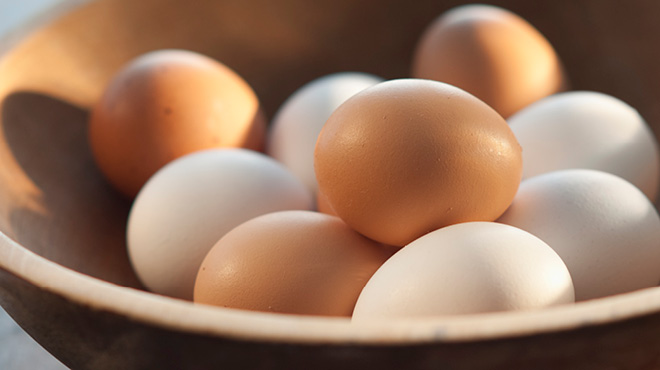How many Eggs Per Day Can Someone Eat on a Keto Diet?
The ketogenic or ‘keto’ diet is a high-fat, low-carbohydrate diet that encourages the body to enter a state of ketosis, where it primarily burns fats for fuel. As individuals embark on this dietary journey, one common question arises: How many eggs per day can someone eat on the keto diet? Eggs are indeed a keto-friendly food item, known for their high-quality protein and beneficial nutrients.
Yet, as with any aspect of a diet, moderation is key. In this article, we will explore the role of eggs in the keto diet, considering factors such as their macronutrient profile, potential health benefits, and guidelines to incorporate them healthily into your daily meal plans. Let’s crack into the details!
The Role of Eggs in the Keto Diet

Eggs have been a staple in many diets around the world for centuries, and when it comes to the ketogenic diet, they hold a special significance. Let’s dive deeper into understanding their role in this high-fat, low-carb dietary regimen.
Macronutrient Profile:
Protein: One of the essential macronutrients, protein is crucial for tissue repair, muscle building, and overall metabolic function. A single egg contains about 6 grams of protein, making it an excellent source for those on a keto diet.
Fats: Eggs, especially the yolks, are rich in healthy fats, which constitute the majority of caloric intake in the keto diet. These fats not only provide energy but also help in the absorption of fat-soluble vitamins.
Carbs: An egg has less than 1 gram of carbohydrates, making it an ideal food for maintaining a state of ketosis.
Vitamins and Minerals:
Eggs are nutrient-dense, offering several essential vitamins and minerals, including Vitamin D, B vitamins, selenium, and choline. These nutrients support various body functions and enhance overall health.
Versatility:
One of the significant advantages of eggs is their versatility. They can be boiled, fried, scrambled, poached, or used as a base in dishes like omelets and frittatas. This flexibility allows those on a keto diet to keep their meals varied and interesting.
Choline Source:
Choline is a nutrient that supports brain health, liver function, and metabolism. Egg yolks are one of the best dietary sources of choline, ensuring those on the keto diet receive this essential nutrient.
Recommended daily egg intake on keto
When it comes to following a keto diet, eggs are often hailed as one of the most versatile and nutritious foods to include in your daily intake. Packed with vitamins, minerals, and high-quality protein, eggs can be an excellent addition to your ketogenic meal plan. The recommended daily egg intake on a keto diet varies depending on individual goals and preferences.
For those aiming to lose weight or maintain their current weight, consuming 1-3 eggs per day can be beneficial. Eggs are low in carbs and high in fat and protein, making them an ideal choice for keeping you feeling full and satisfied throughout the day. Additionally, studies have shown that eating eggs for breakfast can help curb appetite and reduce calorie consumption later in the day.
On the other hand, if you’re following a keto diet for muscle gain or increased physical activity levels, you may choose to consume more than 3 eggs per day. The protein content in eggs is essential for muscle repair and growth, making it crucial for individuals looking to build lean muscle mass while on a ketogenic eating plan.
Ultimately, it’s important to listen to your body’s unique needs when determining the optimal daily egg intake on keto. Whether you enjoy them scrambled or hard-boiled or opt for omelets filled with nutritious vegetables – incorporating eggs into your ketogenic lifestyle is a smart move that offers numerous health benefits alongside delicious flavor variations.
Potential risks of consuming too many eggs:
While eggs are a powerhouse of nutrition, especially favorable in a keto diet, excessive consumption can potentially lead to several risks. Understanding these potential concerns can guide individuals to craft a balanced and healthful keto diet plan. Here are some of the potential risks associated with consuming too many eggs:
Nutrient Imbalance:
Consuming too many eggs might lead to an imbalance in nutrient intake, as it might restrict the variety of foods in the diet. This can potentially result in deficiencies of certain nutrients that are not found in eggs.
Digestive Issues:
Overconsumption of eggs can sometimes lead to digestive issues such as constipation or diarrhea. Eggs are high in protein, which requires a well-functioning digestive system for proper assimilation.
Cholesterol Concerns:
While recent research indicates that dietary cholesterol from eggs doesn’t have a significant impact on blood cholesterol levels for most individuals, in certain populations, particularly those with existing health conditions, excessive intake might pose risks. This is especially pertinent for individuals with conditions like type 2 diabetes.
Heart Disease:
In line with cholesterol concerns, there is still an ongoing debate about the potential link between very high egg consumption and an increased risk of heart disease, although more research is needed in this area.
Allergic Reactions:
Eggs are one of the common allergens. Consuming them in large quantities might exacerbate symptoms in individuals who have an egg allergy or sensitivity.
Variety and alternatives to eggs on keto:
Eggs are a staple on the keto diet due to their perfect macronutrient profile. However, for reasons ranging from allergies to ethical considerations, individuals might seek alternatives to eggs. Let’s explore the alternatives and the variety you can incorporate into a keto diet in place of or alongside eggs:
Meats and Poultry:
- Chicken, Turkey, and Duck: These are excellent sources of protein and can be consumed in various forms – roasted, grilled, or boiled.
- Beef and Pork: Opt for fattier cuts to ensure a higher fat content, aligning with keto macronutrient goals.
- Lamb: Another great source of both protein and fats.
Seafood:
- Fatty Fish: Salmon, mackerel, sardines, and trout are not only rich in protein but also provide omega-3 fatty acids.
- Shellfish: Shrimp, clams, mussels, and other shellfish are keto-friendly, but keep an eye on carb content in some shellfish.
Dairy and Dairy Alternatives:
- Cheese: Hard cheeses like cheddar, parmesan, and gouda or soft cheeses like brie and goat cheese are high in fat and low in carbs.
- Full-fat Yogurt and Cottage Cheese: These can be consumed in moderation due to slightly higher carb content.
- Nut-based Cheeses: Alternatives like almond or cashew cheese can be used if avoiding dairy.
Final Thoughts
In conclusion, eggs can be a valuable addition to a keto diet due to their low carbohydrate content and high protein and fat content. They provide essential nutrients such as vitamins, minerals, and antioxidants. However, it is important to consider individual dietary needs and preferences when determining how many eggs to consume per day.
Some people may thrive on consuming several eggs daily, while others may prefer a more moderate intake. It is always recommended to consult with a healthcare professional or registered dietitian before making any significant changes to your diet. So go ahead and enjoy your eggs in moderation as part of a balanced keto diet!
FAQs
How many eggs can I eat per day on a keto diet?
You can safely consume up to 3-4 eggs per day while following a keto diet.
Can I include other sources of protein besides eggs in my keto meal plan?
Definitely! While eggs are a great source of protein, you can also incorporate other foods like meat, poultry, fish, and tofu into your meals.







